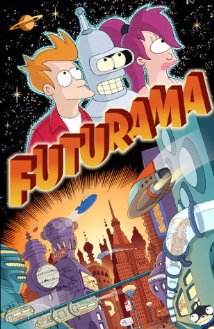Sometime in the late 1980s, an irreverent television comedy sketch show began showing animated shorts about a humorously dysfunctional family called the Simpsons. Poorly mannered, and crudely drawn as if to reflect the fact, the Simpsons were nonetheless a likable bunch - and became immensely popular. They were refreshingly unlike the idealized American families of sitcoms past, and must have reminded TV audiences of their own imperfect households. The animations survived their short-lived host to become their own 30-minute television show and a cultural phenomenon. The Simpsons is now the longest running animated series, as well as the longest running sitcom, in television history. The series is still on the air as of this writing.
The Simpsons is the creation of cartoonist Matt Groening, best known beforehand for his comic strip Life in Hell. In that comic strip, an alienated and self-loathing rabbit resentfully idled his way through modern life, hurling scorn and cynicism at every phase from childhood and education through employment and adult relationships to the bitter end of retirement and death. A bit of that spirit carried over into The Simpsons, but tempered with good humor and compassion.
Matt Groening is a member of the Boomer Generation, that large cohort born just after the Second World War, whose coming of age in the 1960s was a colossal acting out against the moral authority of the Greatest Generation. By the time the Boomers' tumultuous youth era ended, the conventional institutions of American society which had been built up in the mid-20th century were completely discredited. The disillusionment of a post-60s society - cynical about culture, religion, government, business, and the American dream - is reflected in Groening's cartoon creations, which found a ready audience.
As American culture continued its slide into nihilism through the 1990s, the Simpson family became its icons. When the series began, the characters actually had some depth to them and were interesting and sympathetic figures. But they quickly became caricatures of themselves, one-dimensional vehicles for running gags and a stream of caustic sarcasm directed at American society. Nothing was sacred - church, state, schools, corporations, celebrities - all were mocked with equal gusto. The Simpsons became a soundboard for the detached, alienated attitude of the post-60s era, affirming America's distrust of its own traditions, and skepticism about the future. The Boomer generation, with its motto of "Question Authority," was officially in charge of the culture.
The Simpson family are now known worldwide, as is their fictional hometown of Springfield, somewhere in an unnamed state in the USA. Its many tropes are commonplace memes, and it has even introduced a word to the official English language, Homer's catchphrase "D'oh!". And it is practically a truism that a rising celebrity or trend is only relevant if it has been parodied on The Simpsons.
Seen as a representative family of their social era, the loutish husband Homer and his long-suffering wife Marge were typical working class slobs from the last wave of the Boomer generation, born about the same time as Matt Groening himself. The Simpson kids were representative of the childhood generations of the time. Bart, the underachiever with an attitude problem, was on the final edge of Generation X. The slightly younger Lisa, high-minded and dutiful, was from the rising Millennials, the generation into which America was investing all of its hope for the future. As time passed and their ages stopped lining up to this generational boundary, the difference became that between high-achieving "girl power" Millennial females, and lagging-behind "dangerous boys" Millennial males.
In fact, the Simpson family itself remained the one institution on the show that was sacrosanct. Whatever conflict might embroil it in each episode, it always emerged intact. Homer and Marge never divorced, and the kids remained impossibly the same age year after year. In an era of disintegrating social bonds, the family remained the one core institution of society in which America still had faith, Christopher Lasch's "haven in a heartless world."
The success of The Simpsons inaugurated an era of edgy animated TV series, as others were inspired by its example to produce their own bitingly sarcastic takes on modern times. Most of these cartoon shows did not have the staying power of The Simpsons, lasting only a few seasons (two of this author's favorites were The Critic and Duckman). Late in the 1990s, a new generation took up the banner. Generation X pushed the nihilistic outlook of the new adult animation to extremes. The Simpsons had some level of callousness in it, but new shows, such as South Park and Family Guy, were wanton, disgusting, and cruel. It's true that they could be insightful, reflecting Gen-X's ability to cut through the crap and get to the heart of a matter. But they also reflected a capacity for cold-heartedness, lack of a moral compass, and a fascination with the crude and the depraved. If anyone critized these shows, which flew in the face of the genteel sensibility of television past, their Gen-X creators could just point to their wild success and smugly laugh. America's moral decay was complete.
At this same time, Matt Groening's genius gave birth to another animated series, the brilliant Futurama. This is a show about the 21st century that is set in the 31st century. It satirizes its own time, mashing up contemporaneous culture with a multitude of science fiction tropes, including the heads of endless celebrities of our time, kept alive in jars for a thousand years. In some sense it is the ultimate post-modern artifact, reinterpreting our very present through a lens of sci-fi silliness. It also embraces the crudeness and harshness of the new cultural regime, but nonetheless, to this author, it is some of the best TV out there.
There are too many animated shows geared for an adult audience and made in the past couple of decades to count. They range in style from the dryly humorous to the sublimely absurd to the just plain grotesque. Some are even pretty ordinary. With The Simpsons in the forefront, they stand as evidence of the creative and questioning minds of the generations of post-60s America.
 |
|
Year: 1989 Creator: Matt Groening (Boomer Generation, born 1954) |
 |
|
Year: 1997 Creators: Trey Parker (Generation X, born 1969), Matt Stone (Generation X, born 1971) |
 |
|
Year: 1999 Creator: Seth McFarlane (Generation X, born 1973) |
 |
|
Year: 1999 Creator: Matt Groening (Boomer Generation, born 1954) |